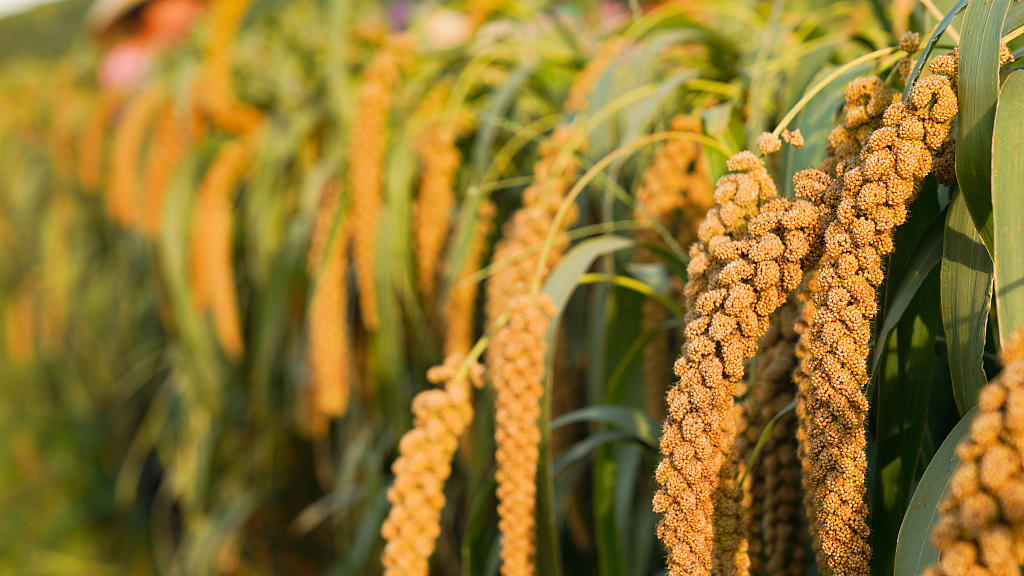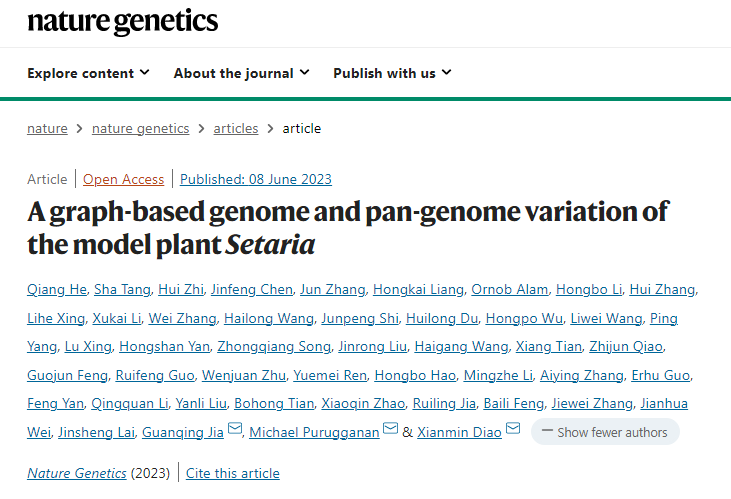
Farmers harvest millet in Zouping city, east China's Shandong Province, September 2, 2022. /CFP
Farmers harvest millet in Zouping city, east China's Shandong Province, September 2, 2022. /CFP
Chinese scientists have made a new breakthrough in the graph-based genome research of foxtail millet, which will facilitate rapid breeding of the crop and help ensure world food security.
The new study, conducted by an international team led by scientists from the Institute of Crop Sciences of the Chinese Academy of Agricultural Sciences (CAAS), was published online in the academic journal Nature Genetics on Thursday.
Diao Xianmin, leader of the research said that foxtail millet is one of the oldest domesticated crops in the world and a staple crop in the formation of the Asian agricultural civilization and it held a dominant position in the Chinese agricultural system before the introduction of high-input agricultural practices like irrigation and chemical fertilizers.
The crop possesses several favorable traits, including high photosynthetic rates, efficient water utilization and strong environmental adaptation, Diao added.

Screenshot of study published in the journal Nature Genetics.
Screenshot of study published in the journal Nature Genetics.
Michael Purugganan, a professor at New York University and the study's co-senior author, said foxtail millet is considered to be the foundation for early Chinese civilization. Moreover, because it is a crop that can grow across a wide range of environments, including arid lands, it has the potential to be important for food security under climate change.
However, scientists previously lacked systematic basic research on the genome of foxtail millet.
Researchers selected 1,844 varieties of millet and performed large-scale genetic studies.
This study provides better understanding of the domestication and improvement process of foxtail millet, the genetic basis for important agricultural traits, as well as the methodology for large-scale data-assisted plant breeding, said He Qiang, the first author of this study.
The achievement will pave the way for the next generation large-scale germplasm utilization and functional gene mining for future breeding. By understanding the comprehensive set of genomic variations, scientists will be equipped with superior genetic tools to pursue biological research and breeding of foxtail millet, said Diao.
The scientist added that the research will also offer insights for other crops to enhance global food security.
(With input from Xinhua)